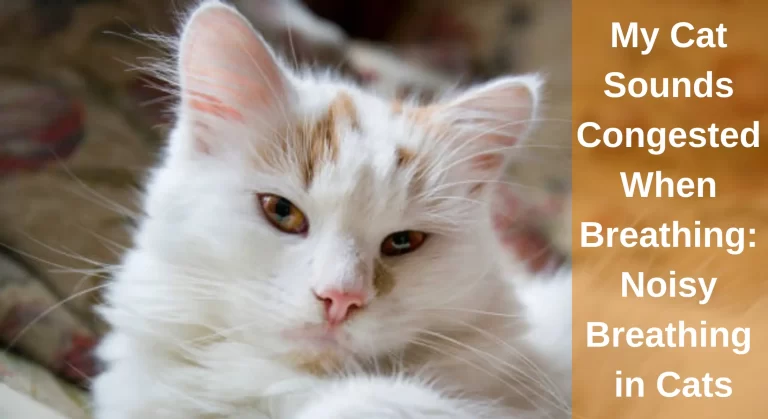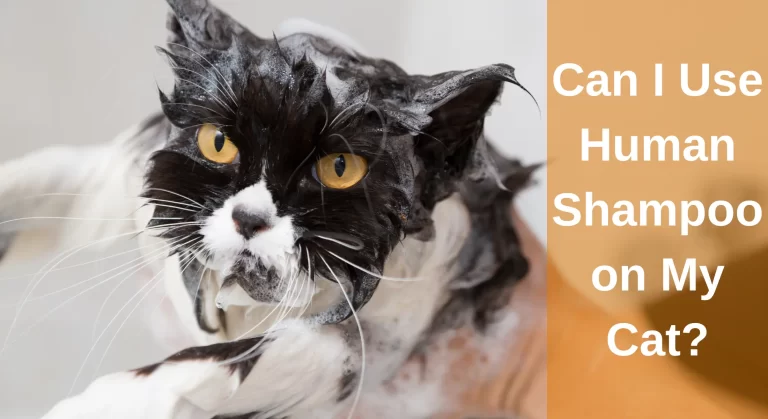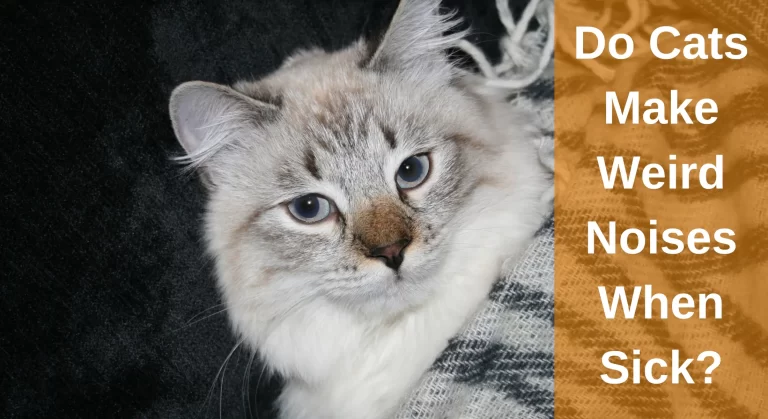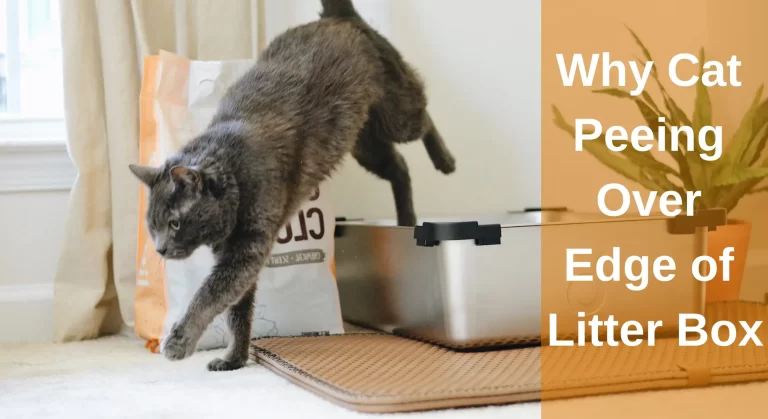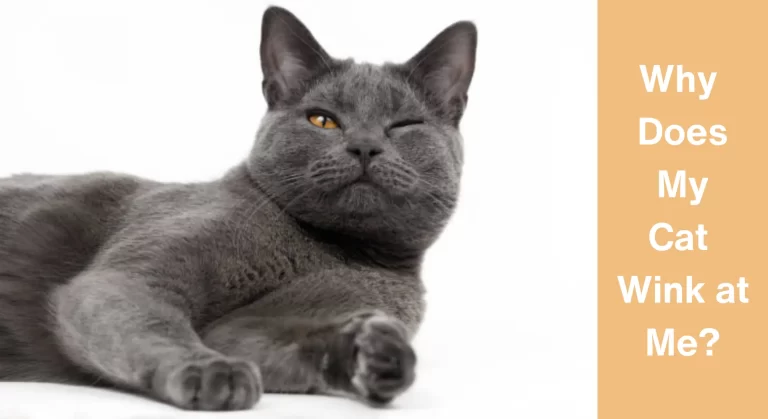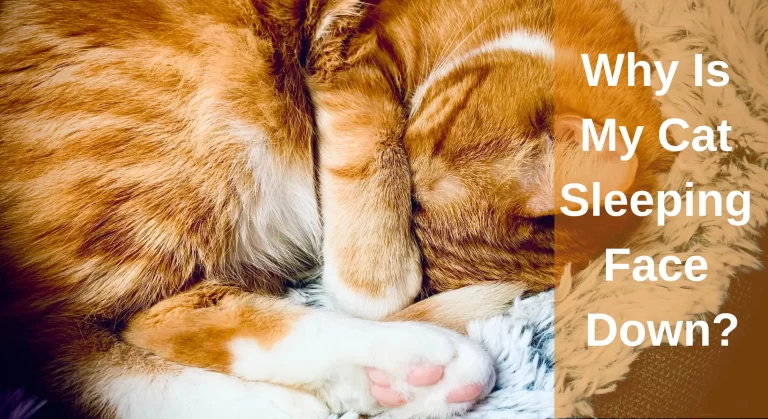Disoriented Cat with Dilated Pupils: Why And How To Help
The dilated pupils of a cat might occasionally be considered normal. Cats’ pupils, for instance, will widen at night or in low light to help them see. You could also notice that your cat’s pupils get bigger when they’re anxious or playing with their toys. This is very normal.
However, if your cat’s eyes are always dilated, this frequently denotes a significant medical condition. Additionally, if you see a disoriented cat with dilated pupils, you can assume that something is very wrong. When they co-occur, dilated pupils and confusion are signs of brain damage or poisoning.
In this post, I’ll discuss these two issues further and highlight other red flags. Both are harmful; therefore, you should immediately take your cat to the veterinarian if either appears as it could apply to her. I’ll also go through a few more conditions that may exhibit the same symptoms, particularly in older cats.
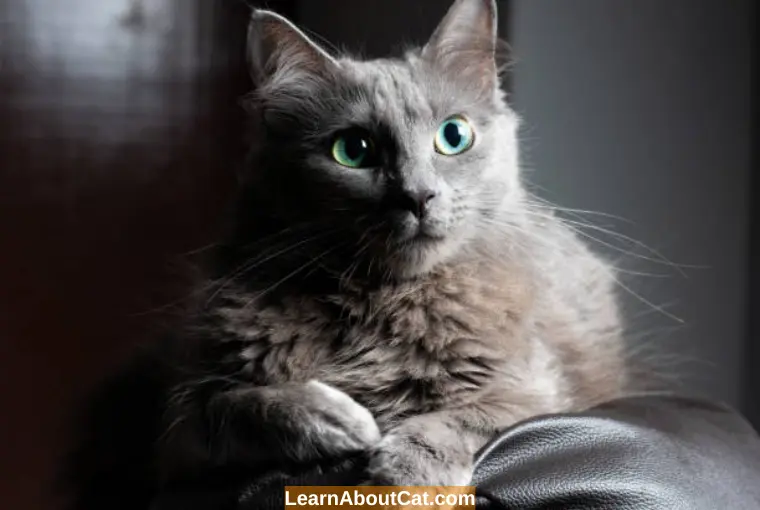
How Do Cat Eyes Work?
Cats see in a similar fashion to how people see. The pupil, the dark area in the centre of the eye, dilates or enlarges in darkness to allow more light to enter while constricting or shrinking in bright light to allow less light to enter. When light enters the eye from the front, it activates the retina, the light-sensitive layer lining the rear of the eye.
The cat’s tapetum, a distinct reflective layer covering the retina, serves as a mirror.
The reflection from it illuminates another region of the retina. When light reaches the eye directly, like when a car’s headlights beam on a cat, the tapetum reflects part of the light back, allowing us to see the greenish-yellow reflection. (Since the retina has a natural red colour and human eyes don’t have a tapetum, any light reflected back appears red.) The internal reflection of light by the eye enlarges a very small quantity of light. Because even a small amount of light is intensified, the cat can see better at night. Although they can consume up to 50% more light than people, cats cannot see in full darkness, just like humans cannot.
Causes of a Dilated Pupil
- When a cat is angry or disturbed, its pupils narrow. The eyes typically expand when one is afraid. When something is happy, euphoric, or terrified, they enlarge.
- The pupil is an important subpart of the eye that allows light to be let in or shrink in low or dim light.
- When cats are uncomfortable, one sign of pain may be seen as dilated pupils.
- Some medications (including atropine, tropicamide, morphine, clonidine, and amphetamine) and plants can cause cats’ pupils to enlarge (like catnip).
- If your cat has dilated pupils while taking medication, speak with your vet so they can let you know if this is a common side effect.
What Medical Conditions Result in Disorientation and Dilated Pupils in Cats?
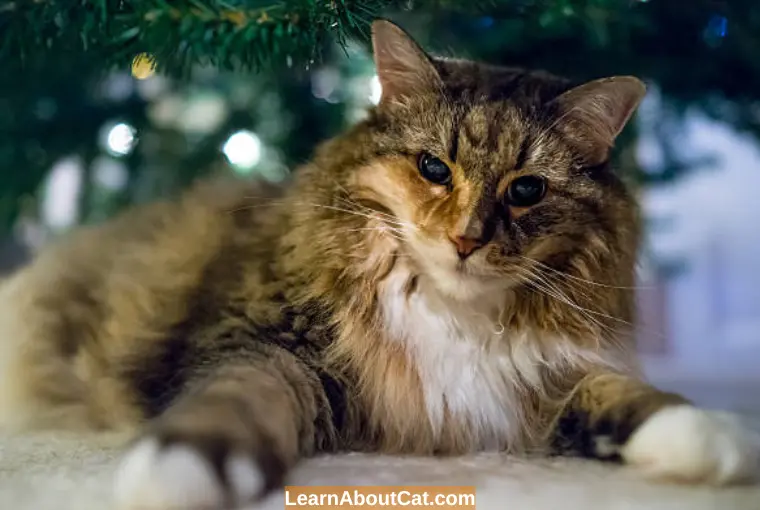
Dilation of the pupils and disorientation are two separate symptoms linked to several medical conditions. However, when you combine the two, your cat may have only so many health issues.
Usually, a cat with dilated pupils and poor concentration has either suffered a brain injury or been poisoned. Both are urgent situations that need medical attention immediately to prevent further complications. Here is a more detailed explanation of each medical condition, along with some additional red flags and advice on what to do next.
1. Brain Trauma
Brain damage in cats is extremely serious and usually fatal. Here, we refer to any damage or injury to the brain that inhibits its functionality. As a result, there are many factors that can lead to brain trauma, such as physical injuries to the head, including being hit by a moving vehicle.
- Lowered blood oxygen levels or an extended period of low blood oxygen levels that lower brain oxygen levels
- Low blood sugar levels to extreme Cats who experience severe or regular seizures
Brain bleed brought on by a problem with blood clotting
Brain tumours or other malignancies that spread and impinge on the brain tissue. Blood clots move to the brain through the body. A prolonged and considerable decline in body temperature.
Brain Trauma symptoms
Because the brain controls every physical function, the clinical signs may vary depending on the particular location of the brain injury and the extent of the damage. Additionally, when a head accident causes brain damage, there may be visible signs of harm present; however, other reasons won’t be as noticeable.
- seizures
- Nose and ear bleeding
- Eye bleeding
Your cat would likely be confused and disoriented if it got a head injury. Confusion, a dazed expression, and abnormal behaviour can also result from other types of brain injury.
What To Do
All of your cat’s vital functions are controlled by its brain, which must function efficiently so that your cat can survive. Please get in touch with your veterinarian as soon as you notice any of these symptoms of brain trauma. In some cases, a vet may have to perform brain surgery to correct the underlying cause of the injury. Therefore, they must be hospitalized immediately.
2. Poisoning
Another option is that the cat was poisoned and became confused with dilated pupils. This happens when a cat ingests a toxic toxin that affects the body. There are a number of everyday items in your home that might poison you, including:
- Supplies for cleaning and pesticides
- Toxic flowers and indoor plants
- People enjoy eating onions and garlic.
- Essential oils like lavender and tea tree
- High sodium concentration, commonly referred to as salt
Symptoms of Poisoning
If your curious cat has managed to get its paws on something it shouldn’t have, the signs will show up quickly. The precise symptoms vary depending on whether the toxic substance was touched or ingested. But disorientation and dilated pupils are frequently encountered.
Cats, for instance, have been seen to become confused after consuming chocolate. This is due to the poison’s ability to reduce blood sugar levels and change how the stomach absorbs nourishment.
- Seizures
- Vomiting or diarrhoea
- Drooling more frequently
- Wheezing
- Rapid breathing
What To Do
It is important to seek immediate veterinary treatment for poisoning as well. Make sure your vet has a sample of the product your cat came into contact with. Then they will be able to determine which medication is most appropriate for that poison so that they can flush it out from the cat’s body as quickly as possible.
It shouldn’t take your cat long to recover once the poison has been removed from its system. To prevent poisoning in the future, keep all dangerous substances in a Sealed box.
Cat With Dilated Pupils and Confusion: Additional Causes
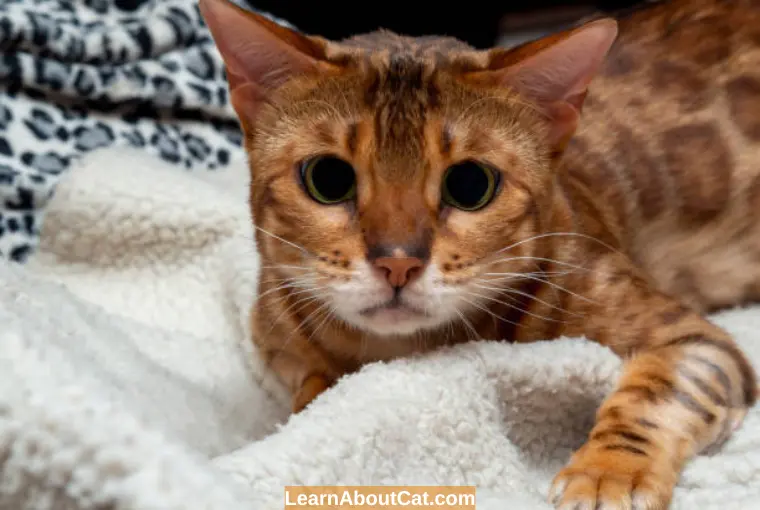
Cats, especially elderly cats, are susceptible to many medical conditions at once. So a cat that is confused and has dilated pupils may go through two stages at once: one that produces bewilderment and another that causes the dilated pupils. It might just be a coincidence that both symptoms began simultaneously!
Are your cat’s eyes always dilated and never narrow in response to bright light? If so, high blood pressure is typical of a fault. Cat dysautonomia or vision loss can also result in chronic dilatation; however, both conditions are rare.
Stress, worry, and ongoing discomfort are potential explanations for your cat’s eyes dilating more than normal but not consistently.
The most common sign of feline cognitive impairment typically seen in older cats is disorientation. Feline vestibular disease, which affects the ear, can cause a cat to lose their balance and stumble. Disorientation is a known adverse effect of FIP and seizures in cats.
So it’s likely that your cat suffers from a combination of these conditions. This is more likely to occur in older felines with cognitive issues and vision loss regularly. However, any combination is conceivable! To receive a thorough diagnosis and treatment, take your cat to the veterinarian.
Check Out: Why My Cat Has Watery Eyes and Sneezes?
Other Reasons for Dilated Cat Eyes
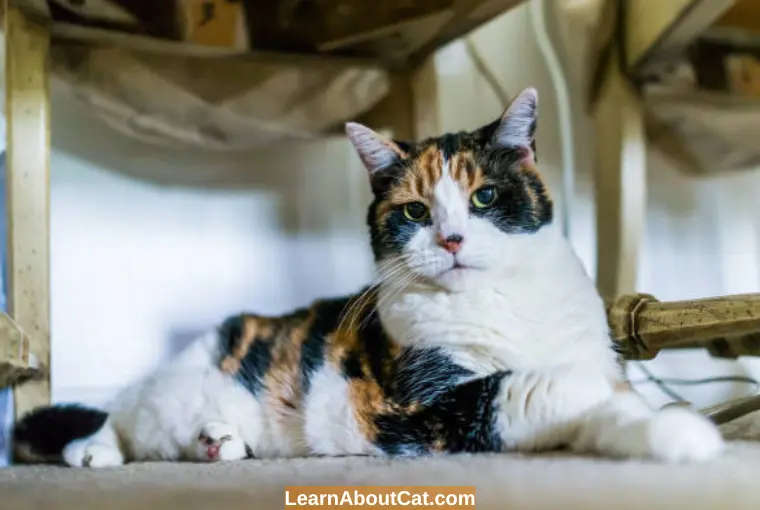
A cat’s eyes can expand under a variety of circumstances, from innocent amusement to more serious ones like tension or concern.
1. Your Cat Is Trying to Get a Better Look
Cats’ pupils may dilate to improve their night vision. Actually, they have a distinctive reflective coating called the tapetum lucidum that enables them to reflect more light to the rear of the eye. Despite having dilated pupils, your cat’s vision in the dark is still not as good as that of humans or many other animals.
2. Your Cat is Frightened
Fear of the unknown affects both our feline friends and us on a regular basis. A new person, animal, sound, or object may terrify your cat and once more awaken her “flight” or “fight” instincts. Your feisty cat may be afraid if she displays the following behaviours in addition to having dilated pupils, according to PetMD.
- Trembling
- Keeping a lot of vocalisation
- Hiding (meowing, hissing, shrieking, etc.)
- More grooming
- Attempting to escape from aggressive or destructive behaviour
- Heavy mouth breathing
- Not using the litter box
- Diarrhoea
If a strange person or thing makes your cat anxious, you may calm it down through desensitisation training.
3. Anisocoria
Uneven pupil diameters in cats, known as anisocoria, are a sign that your pet needs to visit the vet. But irregular pupil diameters are not a disease in and of themselves but rather a symptom of an underlying disease.
4. Perhaps Your Cat is Unwell
Cats’ eyes can expand for a variety of reasons, some of which can be hazardous medical conditions. If your cat’s eyes are persistently dilated and are also accompanied by other illness-related symptoms, consult your veterinarian right once. A cat’s pupils should grow narrow in bright, well-lit environments. Dilated cat eyes may be a sign of the following illnesses.
- Dysautonomia
- Trauma
- For instance, feline infectious peritonitis or toxicity parasite infections (FIP)
- Optic nerve disease or injury, cancer
Your Cat Is Panicking or Feels Overwhelmed
Your cat’s “flight” or “fight” instincts may also be triggered when she is anxious or afraid, similar to how she reacts to her favourite mouse. PetMD suggests keeping a lookout for the following signs of your cat being overly excited in addition to dilated eyes:
- A backflip
- Hastened to breathe,
- Connecting their tail and body securely
- Lowering the head and leaning back
- Trying to go away or just remaining put
- Protecting their ears, increasing hair volume
5. Aggression
Cats are prone to feeling worried or nervous for a variety of reasons. If your cat continues to show signs, it’s important to monitor any changes to her daily routine, environment, or other aspects of her life.
6. Your Cat is Amusing You
Cats can get emotionally aroused when playing; this emotional arousal can be caused by play, stress, or fear. When your cat is about to whack her favourite mouse, the sympathetic drive, often known as fight or flight, kicks in, and the pupils widen to permit more light to enter the eye, thus enabling them to see and respond more.
Why Does My Cat Have big Eyes and Drool?
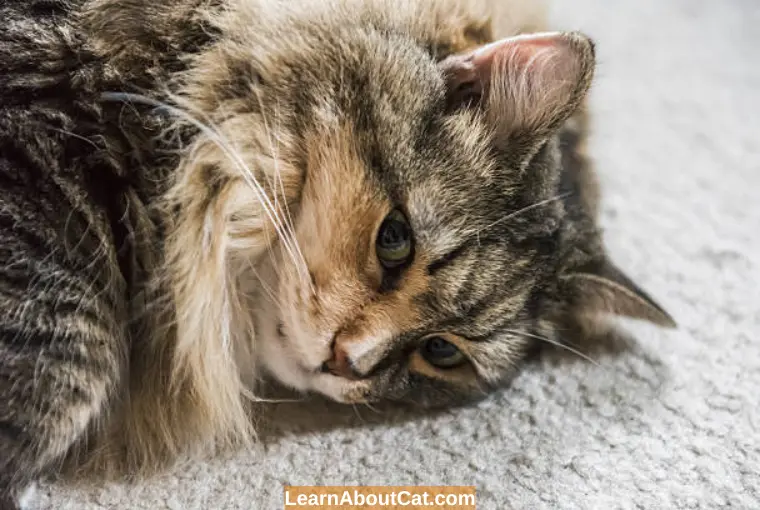
The dilated pupils of a cat might occasionally be considered normal. Cats’ pupils, for instance, will widen at night or in low light to help them see. You could also notice that your cat’s pupils get bigger when they’re anxious or playing with their toys. This is very normal.
You should rule out any potential medical issues if you notice that the pupils are persistently large. You should rule out any potential medical issues if you notice that the pupils are persistently large.
- Anisocoria, which occurs when one pupil is dilated, and the other is constricted, is another reason why people have dilated pupils. In certain medical situations, one pupil may be larger than the other. It is advised that you arrange a checkup appointment with your veterinarian if you notice that your cat is exhibiting these symptoms so that it may be inspected and have its vision assessed. Anisocoria can result from a variety of diseases, including glaucoma and eye conditions as well as damage to the brain or nerves.
- Blood pressure that is too high, often known as hypertension, is one likely cause of dilated pupils. High blood pressure can develop even by itself (primary hypertension). If your cat’s dilated pupils are brought on by high blood pressure, you could have seen other signs or symptoms that would have alerted you to their sicknesses, such as a change in weight, a change in appetite, or a bad coat.
- Rarely, dilated pupils and serious vision loss in your cat are possible outcomes. Additionally, greatly dilated pupils may indicate blindness. The underlying cause of sudden or acute blindness may be a medical condition.
Frequently Asked Questions
The Bottom Line on Disoriented Cat with Dilated Pupils
You may find it challenging to maintain composure if you come across a bewildered cat with dilated pupils. Both of these symptoms are red flags that something is wrong, but all you have to do is maintain your composure and make an emergency appointment with your vet. They’ll be able to examine your cat, determine the cause of any disease, and prescribe a course of therapy. With the right care, maybe your cat will fully recover.
Who is Isabella?
My name is Isabella, and I am a dedicated and knowledgeable cat enthusiast. With years of experience caring for cats and a deep love for felines, I made a mission to help other cat lovers navigate the challenges of cat ownership.

